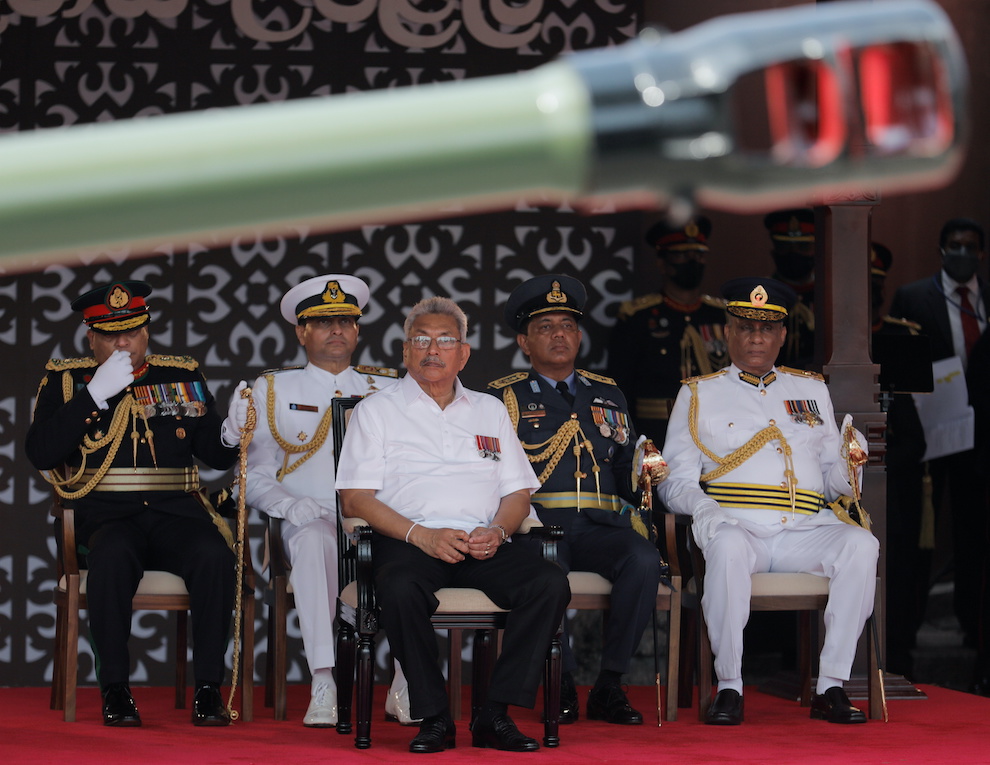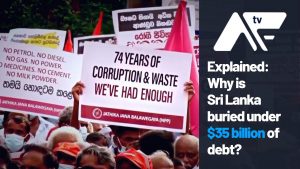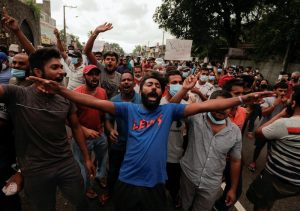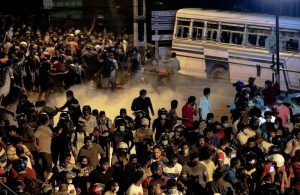In 2020, Mahinda Rajapaksa won elections to become Sri Lanka’s prime minister, serving under his brother and president, Gotabaya. In 2021, another sibling, Basil, was named finance minister, tightening the family’s hold on power.
Less than a year later, the country’s pre-eminent political dynasty is in trouble, as protesters take to the streets making demands that would have been unthinkable before the economic crisis struck: that the president steps down.
“Gota go home!” hundreds of people chanted along a leafy boulevard in Sri Lanka’s commercial capital Colombo this week as cars drove past, honking their horns in support.
From beachside towns in the south to the Tamil-speaking north, more than 100 demonstrations have broken out across the island nation since last week, according to the WatchDog research collective.
The unprecedented wave of spontaneous protests reflects people’s anger at spiralling inflation, fuel shortages, power cuts and what they see as rulers’ mismanagement of the crisis that has made it worse.
“Sri Lankans are very, very patient. You’ve really got to push them into a corner before they react,” said Chantal Cooke, a protester, holding a banner demanding that the Rajapaksas resign.
The office of the United Nations High Commissioner for Human Rights said it was “closely following developments in Sri Lanka”.
“Public frustration has been rising in recent months with largely peaceful demonstrations taking place across the country,” the UN agency said.
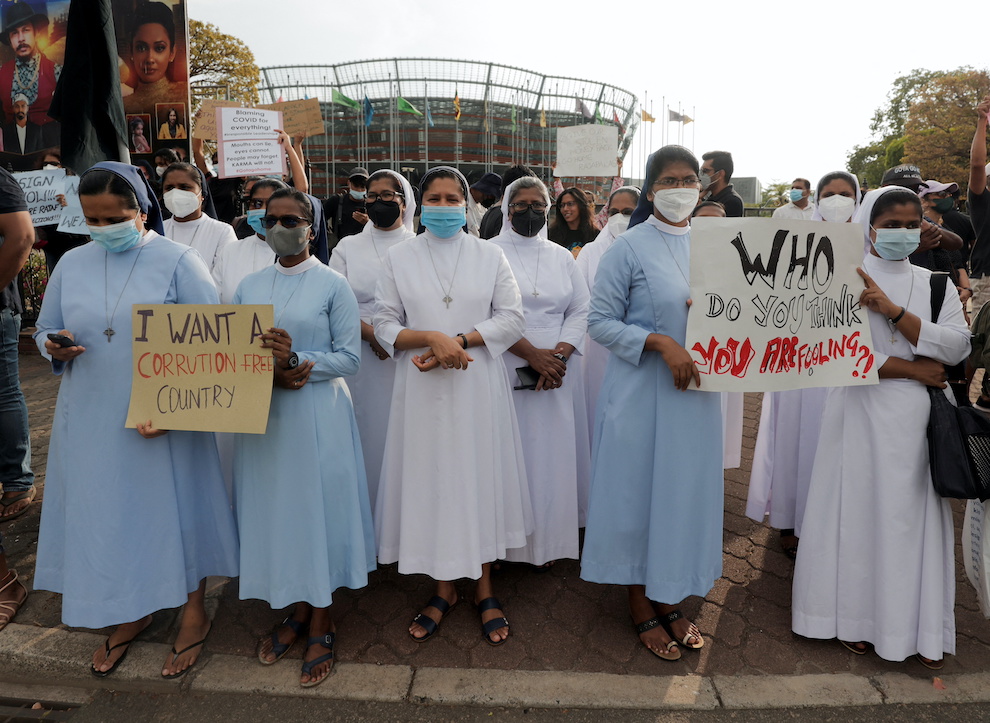
Cost of Living Crisis
“The situation has worsened over the past two weeks amid sudden shortages in fuel, cooking gas and some essential food items, as well as power cuts.
This led to further protests by Sri Lankans left desperate by the rising cost of living and difficulties to obtain basic items.
“The protests roiling Sri Lanka are a clear message about many people’s economic situation,” Sarah Saadoun, a senior researcher focusing on poverty and inequality at Human Rights Watch, said.
“The IMF and the Sri Lankan government should come to an agreement that supports people’s ability to afford life necessities and addresses the problems underlying the current crisis,” she added.
While Basil Rajapaksa resigned on Sunday along with other members of the cabinet, the family is unlikely to give further ground.
Family Refusing to Go
Chief government whip and Highways Minister Johnston Fernando said Gotabaya, now 72, had been given a mandate to govern by 6.9 million voters, the number who supported him in presidential elections in 2019.
“As a government, we are clearly saying the president will not resign under any circumstances,” Fernando told parliament on Wednesday. “We will face this.”
On Tuesday at least 41 lawmakers walked out of the ruling coalition, leaving the government with a minority in the 225-member house and opening up the possibility of a no-confidence motion.
“The more it (the crisis) gets dragged on, the worse it will be for the Rajapaksa family,” political analyst Kusal Perera, who has written a book on Mahinda, himself a former president, said.
The president’s office did not immediately respond to a request for comment on the crisis and on calls for him to resign.
“Sri Lanka has no easy choices left as it looks to dig itself out of its economic mess,” Caroline Bain, chief commodities economist at Capital Economics, said.
- Reuters, with additional editing by George Russell
READ MORE:
Sri Lanka Crisis Shows China’s Debt Trap – TimesNow
Sri Lankan President Axes Minister Brother as Protests Rage
Sri Lanka Businesses Reel as Economic Crisis Spirals – SCMP




